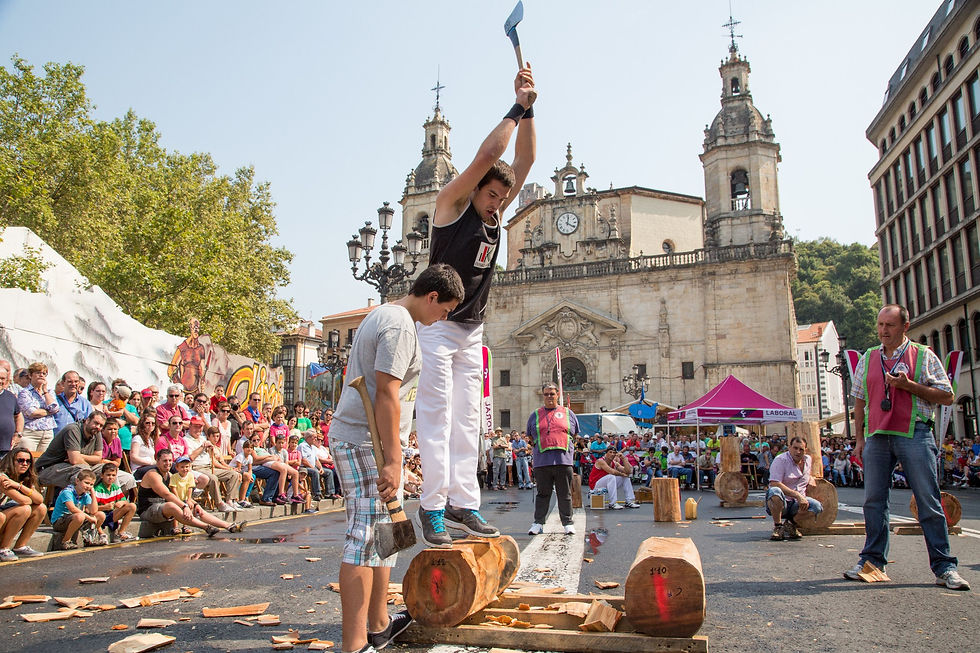Gernika, The City Of Peace
Sports

Literally "ax test", this rural sport is more commonly known as aizkolaritza, from the Basque word for a wood-cutter. In this competition, the woodcutter has to chop through a number of tree trunks arranged on the ground in rows as quickly as possible while standing on the log to beat his competitors. This sport is often seen in summer at local festivities and open-air dances, held in towns all over the country.

A very popular rowing competition all along the coast of the Bay of Biscay and the Northern coast of the Iberian Peninsula. A crew is made up of thirteen oarsmen and the cox. In the competition, each crew has to row as fast as it can to complete the distance faster than the other crews.

The fastest form of pelote, called zesta punta, is played on an outdoor court with a second wall called a jai-alai. The ball is accelerated to high speeds with a hand-held device (zesta).

The lifting of stones is one of the most widely known Basque rural sport outside the Basque Country. There are usually two stone-lifters competing in each event, taking turns in one or several attempts to perform the greatest possible number of lifts. A lift is considered complete when the stone has been properly balanced on the shoulder. The stones are traditionally made of granite, and their weight normally ranges from 100 kg to 212 kg.

The Basque sport best known outside the Basque Country is Basque pelota. The basic principle in hand-pelota is that there are two teams of two players each. A team throws the ball to a wall, and when the ball bounces the other team has to throw it back to the wall. If the ball doesn’t reach the wall or it hits below a certain point marked by a line, the other team scores. The ball is thrown by hitting it with the hand.

It's a sport that directly puts two teams against each other in a test of strength: teams pull on opposite ends of a rope, with the goal being to bring the rope a certain distance in one direction against the force of the opposing team's pull.
Basque traditional sports (herri-kirolak, people’s sports, in Basque) are very old sports, which were created after everyday activities of Basque mine workers, farmers and fishermen, like carrying weights or rowing as fast as possible.
In Gernika, three teams take part in some of the top national leagues: Gernika KESB (basketball), Gernika Rugby (rugby) and SD Gernika (soccer).